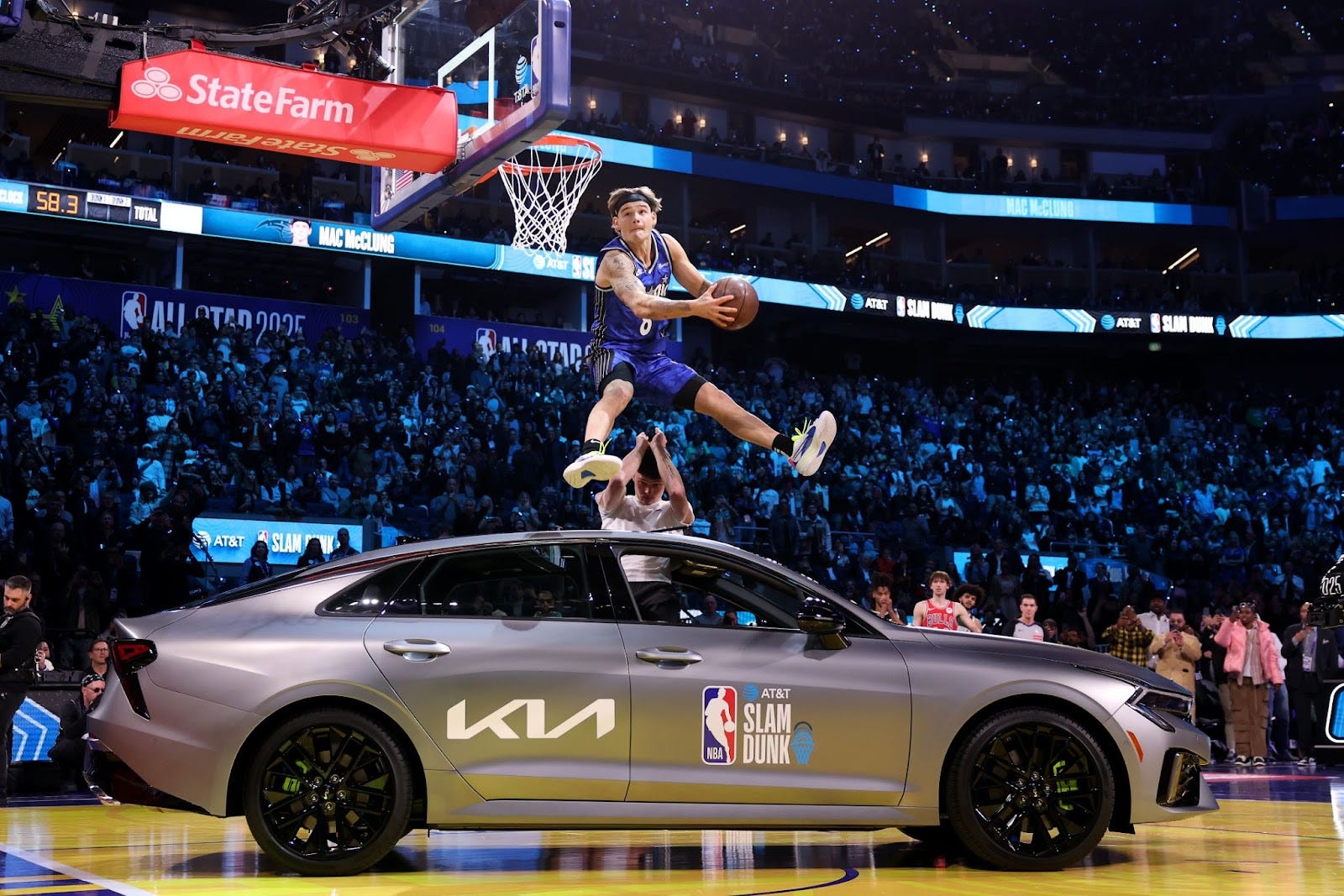Mac McClung’s secret sauce
Intentional long-term athletic preparation
BY HENRY ABBOTT
As All-Star weekend unfolded in San Francisco, American mid-distance runner Grant Fisher took the track in Boston and broke a 21-year-old world record, running five kilometers in 12 minutes, 44.09 seconds. It was, somehow, Fisher’s second world record in six days. He had just run three kilometers in 7:22.91 the weekend before at the Millrose Games in New York City.
As he rounded the final curve, the crowd on its feet, Fisher embodied the high intensity, all-out “get after it” that happens in the NBA playoffs—but, to the basketball world’s dismay, not at last weekend’s All-Star weekend by the Bay.
Standing on the track in the aftermath, Fisher described his recipe, saying he had spent the week between races at his girlfriend’s place in Boston, doing almost nothing. Some ice baths, some massages, mostly lying on the couch. In running, it’s called “tapering.”
In stirring the human spirit, somehow this barely televised afterthought of a sport outperformed…



